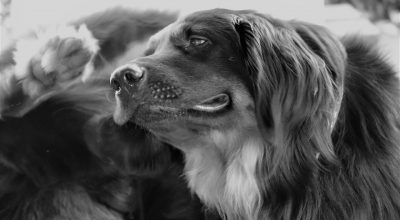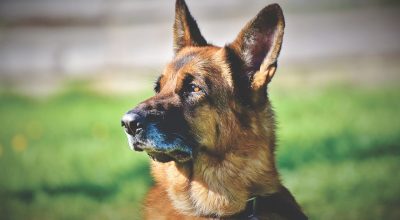In many cases, a dog licking himself can be traced to behavioral reasons rather than medical ones. Typically, licking is not a sign of a severe health condition. It may just be your dog grooming themselves or playing with objects and other surfaces. However, when you find that licking is excessive, you might be asking, why does my dog keep licking himself? The licking might cause hotspots, hair loss, and skin irritation. You might want to redirect your dog’s attention by providing other activities that can stimulate them. Applying positive reinforcement can also help mitigate licking behavior by rewarding your dog with desirable alternative behaviors. As an example, you can reward your dog with a treat when they stop licking when you utter the word, stop.
What Can You Do About Problem Licking?
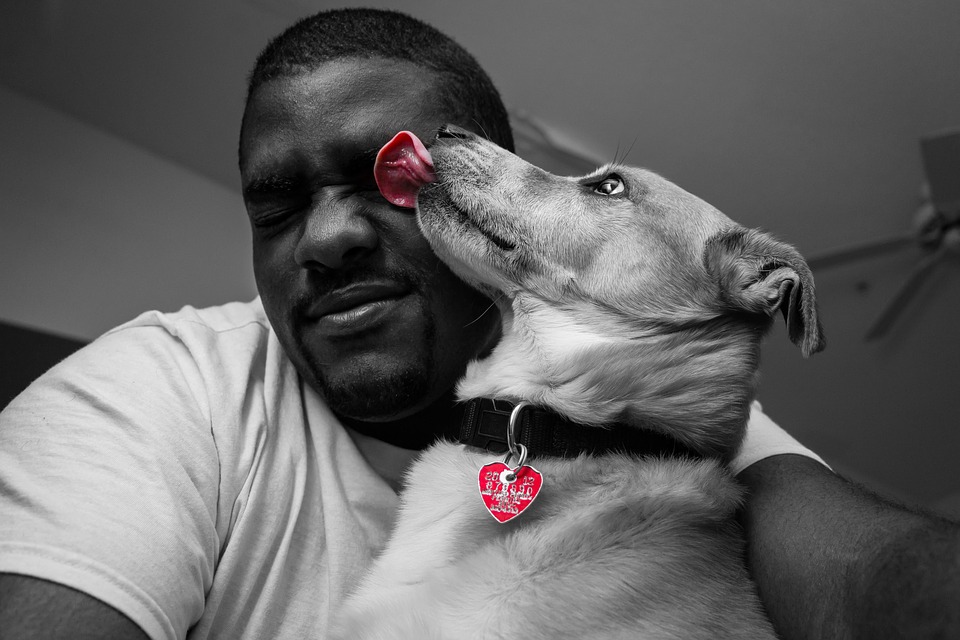
If your dog is excessively licking themselves, you might want to consult with your vet to factor out any medical issues. Once medical explanations are ruled out, you can apply behavioral interventions.
According to experts, you can redirect your dog’s attention. Please provide them with an alternative activity. A good option is to provide a stimulating activity such as a puzzle toy that releases treats. You can play with your dog and get them interested in ball play or trick training.
When you keep on repeating this redirection, you will enforce the lesson that you do not want your dog to lick without utilizing negative reinforcement.
Trick training
Trick training is a good option to stop undesirable behavior. You can start training your dog to sit, which might help stop the licking on its own. Afterward, reward the behavior. You might also want to get your dog’s affection by instructing them to give you a hug. You might even want them to speak. There are several tricks you can teach them, including sitting, crawling, and leg wagging. If you and your dog have fun with trick training, you might want to check a more extensive trick training guide.
Make sure that your loving dog gets plenty of stimulation exercise. Pent-up energy can lead to boredom and over licking as well as other problem behavior.
Why Does My Dog Keep Licking Himself? When to Worry
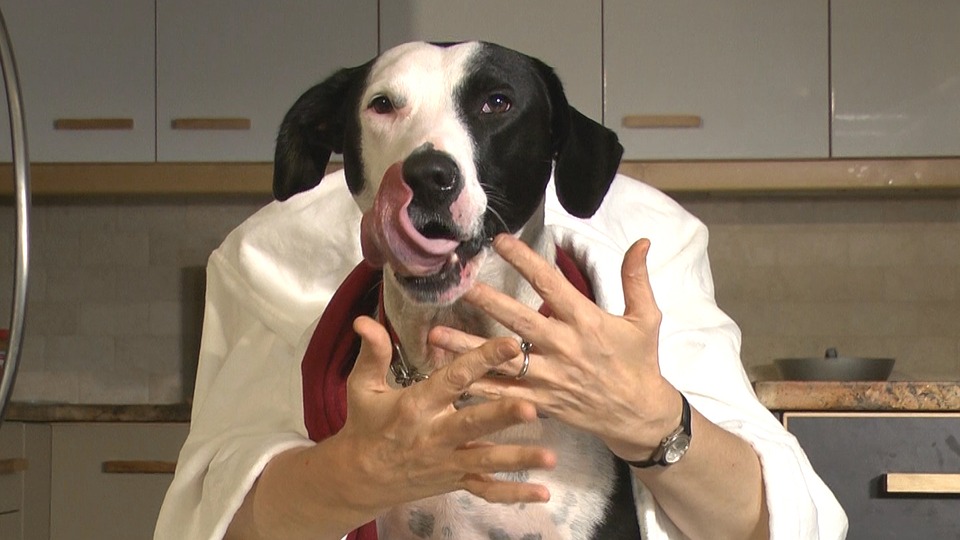
It is typical behavior of dogs to lick themselves. However, when does it become a serious issue? Your dog might lick daily to keep themselves clean, which is a biological behavior in the animal world. But there are times when licking is excessive and might be a sign of a medical condition.
Allergies
Allergies are a top cause of excessive licking in dogs. Others may find that their dog licks areas between the toes. They might even lick at their hind legs and inner thighs.
Environmental allergies
Many particles in the environment such as dust, dander, pollen, and other airborne particles can become wedged on the skin and fur and cause itching. Allergies due to flea bites and proteins found in pet food can also cause allergic reactions.
It is crucial to clean your dog’s paws with a warm washcloth, especially after walking them outdoors in these cases. It helps mitigate environmental allergens. Owners should consult with a vet if the skin is changing color. You might want to check wounds, pimples, and crusts on the skin. Be on the alert If your dog is excessively scratching, licking, and if you see fleas crawling on their body.
Nausea
In some cases, dogs lick because they are nauseous. If your dog is licking odd places such as walls and floors or their lips frequently, it might indicate gastrointestinal upset. In some cases, dogs will drool excessively and even smack their lips when they feel nauseous.
If your dog is exhibiting these signs and it lasts more than a day, and if the behavior comes with vomiting, diarrhea, and reduced appetite, it is crucial to consult with a vet at once.
You must address their quality of life. There are products on the market, such as shampoos, which can cause itching. Your vet might also recommend antihistamines to soothe your dog.
In some cases, your vet may require your dog to undergo diagnostic tests such as blood testing and x-rays to factor out digestive issues. Your vet will also prescribe medications to control and eliminate nausea.
Obsessive disorder
Excessive licking can be traced to behavioral causes, such as anxiety or obsessive disorders. In this case, your dog will be over grooming themselves. Some studies reveal that licking increases the release of endorphins in the brain, which help soothe your dog. Being exposed to loud noises and dealing with separation anxiety can also lead to excessive licking.
It is crucial to apply interventions at once to mitigate this behavior. Excessive licking can lead to skin infections, which might result in excessive shedding. It might even result in granulomas, which can be painful for your dog.
Infected skin
If your dog develops a skin infection, your vet will mitigate the skin infections or granulomas, which resulted from excessive licking. They will also determine if the licking is due to a medical issue or something that can be corrected by behavioral training.
Applying diversion techniques can be useful if your pet is over-grooming. You will need to monitor them and intervene when they start grooming obsessively. Please provide them with their favorite toy or a treat for something else to focus on. You might want to take them out for a walk or even bond with them by brushing their hair. It helps keep their mind diverted from their compulsions.
Suppose your vet discovers that your dog is excessively licking after the examination because of anxiety or other compulsive behavior. In that case, there are natural soothing products that can be used as treatment. These interventions include calming water drops, soothing treats, and pheromone collars.
One intervention you can do is to spray apple cider on the skin to discourage licking. However, you should discuss this method with a vet to make sure it will not cause further irritation on your dog’s skin. Overall, these natural treatments have little to zero side effects. It is a safe addition to a treatment plan.
Low-stress environment
It is crucial to give your dog a low-stress environment, especially if they are anxious. Please provide them with a quiet, dimly lit area. In some cases, natural treatments are not enough to soothe your dog and mitigate excessive licking. In this case, it is crucial to have a thorough consultation with your vet about mood calming prescriptions such as clomipramine. However, these drugs might result in side effects and should only be used in severe cases. It is crucial to discuss all options with your vet prior to dosing your dog with these medications.
When it comes to our canine furballs, it is crucial to give them a quality life. If you find that your dog is licking excessively, discuss this behavior with your vet. Together, you can determine if the signs lead to something serious or if your pet is simply grooming themselves.
Ways to Soothe the Itch – Why Does My Dog Keep Licking Himself?
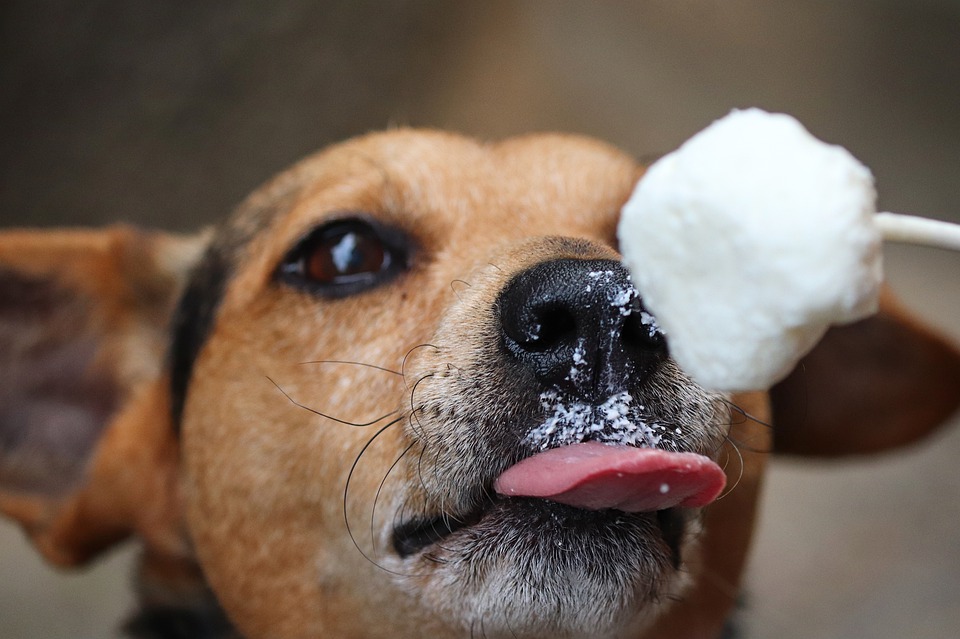
Once you discover the underlying reason behind your dog’s excessive licking, you can begin treatment. Fortunately, there are several treatments available, both natural and traditional, to mitigate your dog’s habit and eliminate the underlying problem. The result is your dog will be feeling better. The following are some ways you can help soothe your dog and heal their skin.
Traditional Treatments
Traditional treatments can be beneficial if the reason behind your dog’s itching and chewing are allergies, parasites, and infection.
In this case, allergy medication such as OTC Benadryl or vet prescriptions can help alleviate both food-based and environmental causes. External parasites can be treated by applying topical products such as pills and flea collars. There are many kinds of treatments, including pills, antibiotics, and medicated shampoos to eradicate fungal and yeast infections. Applying ointments on the ear and affected areas mitigate disease and eliminate mites.
Non-medical intervention
These treatments do not use medication in soothing your pet. It may be used in addition to medications and supplements. In some cases, they can be used as a stand-alone. These treatments are often applied when the cause of excessive licking is a behavioral issue rather than a medical one. These treatments are great if your dog is feeling bored, stressed, and anxious.
One intervention are no lick strips, which are becoming well-known in the vet world. It has plenty of uses. They were typically used to stop patients from licking and chewing IV lines. These strips deliver a small electric shock when your dog places its tongue on specific areas. It stops licking without causing severe harm. You might also want to utilize dog boots to prevent licking of the feet. Cone collars are also effective deterrence and block access to areas of the body.
When it comes to stress and anxious dogs, you might want to apply pheromone sprays and diffusers. These are soothing pheromones that mitigate stress and anxiety. It also mitigates your dog’s obsessive habits. These sprays are often used combined with other no lick methods to alleviate anxiety while training out undesirable behaviors. You might also want to use sprays to discourage your dog from licking objects. Use them in conjunction with the treatments mentioned.
Natural supplements
Supplements are a great way to stop excessive itching without utilizing harmful chemicals and deterrents. Natural treatments include vitamin E and fish oil.
These are fantastic supplements that can mitigate dry skin. It improves the coat and overall health of the skin. Plus, it reduces inflammation and even mitigates pain. Vitamin E and fish oil are great interventions when the itch is traced to dry skin and hormonal imbalances. It helps relieve pain and inflammation from allergies and parasites. Combined with traditional medications, these supplements provide soothing relief.
Diatomaceous earth is another potent parasite remedy utilized for a long time. It is non-toxic and created from fossils of freshwater and marine creatures. Diatomaceous earth functions by dehydrating the shell of parasites causing them to die off. It has the advantage of being harmless to people and pets. It can be applied topically to kill off fleas and ticks. You can also apply them in the environment, such as beddings and carpeting, to prevent parasites’ spread. They can even be ingested to eradicate internal parasites.
Dietary changes
Applying dietary changes in your dog’s nutrition can make a massive difference in soothing chronic itching and licking. Your dog might be suffering from food-based allergies, which leads to pain, inflammation, scratching, and chewing. It is crucial to identify the culprit in your dog’s diet, which is causing the allergies. Change their diet to stop the problem. A majority of dogs are allergic to ingredients such as corn, soy, and wheat. But some dogs might also develop allergies to specific proteins such as chicken and beef. You may need to consult with your vet to pinpoint the exact cause.
One option you can do is to switch to a grain free diet or a novel protein. It helps improve your dog’s skin and coat and mitigate allergic symptoms such as redness, itching, and rashes. You might also want to add a probiotic supplement, which can soothe chronic itching. If their behavior is traced to an infection, your dog might require antibiotics. Adding yogurt and other probiotic supplements to their nutrition can help balance their body’s biome both internally and externally, mitigating itching.
Final Thoughts – Why Does My Dog Keep Licking Himself?
Many dogs have a habit of licking themselves. Why does my dog keep licking himself? In many cases, this behavior is harmless. However, it is crucial to check the areas your dog is excessively licking. If there is redness, rashes, and abnormal growth, it is crucial to get them examined by a vet at once. If the licking is a reaction to a behavioral issue such as anxiety or stress, you must apply interventions in your dog’s environment to curb this problem.

